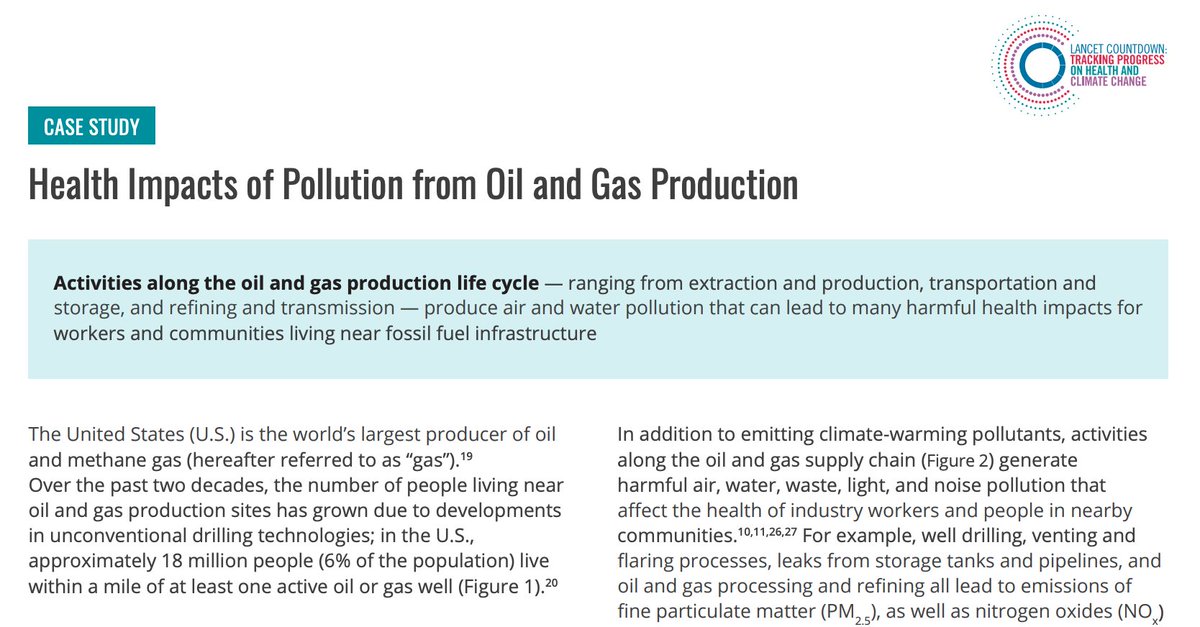A 🧵on some of the big climate & energy reports that have just come out ahead of #COP27, before we have to abandon this ship..
➡️ @UNEP Emissions Gap Report
➡️ @IISD_Energy Navigating Energy Transitions
➡️ @IEA World Energy Outlook
➡️ @LancetCountdown on health & climate change
➡️ @UNEP Emissions Gap Report
➡️ @IISD_Energy Navigating Energy Transitions
➡️ @IEA World Energy Outlook
➡️ @LancetCountdown on health & climate change
Bear in mind that (1) Last month, a study from @sthlmresilience reinforced the message that every fraction of a degree counts. Five dangerous climate #TippingPoints may have already been passed due to the 1.1°C of global heating caused by humanity to date; theguardian.com/environment/20… 

... and (2) Atmospheric levels of three greenhouse gases -- CO2, methane, and N2O -- hit record highs in 2021. theguardian.com/environment/20…
➡️For the 13th year in a row, the @UNEP #EmissionsGap Report issues a clarion call that governments' pledges fall far short of limiting warming to well below 2°C. Only a handful of countries have increased their climate ambitions since #COP26. 2022 has been another "wasted year". 

This is kinda beside the point but WOW. I love the cover design of this year's #EmissionsGap Report. The broken and missing ladder rungs are subtle yet convey so much, while the ladder itself combined with the background evoke power plant stacks 🙌💯 

So, how do we align our energy systems with the Paris Agreement? As @SEIresearch @UNEP et al. have explored in our #ProductionGap reports, *global* fossil fuel production & use must rapidly decline, starting now, in addition to other mitigation levers.
https://twitter.com/climateploy/status/1453097121884905472?s=20&t=bwP1ggH_PExrzg9CATE3WA
➡️The new "Navigating Energy Transitions" report from @IISD_Energy takes a deeper dive into 1.5°C-aligned oil and gas decline pathways. I want to highlight two important nuances that I think have been missed in many of the attention-grabbing headlines: carbonbrief.org/new-fossil-fue…
1) The IPCC AR6 assessed scenario "feasibility" along 5 dimensions, each of which considered many indicators. Based on this, IISD chose to limit the feasibility of Fossil CCS & BECCS scale-up, plus sustainable afforestation limits, given the reasons well-argued in their report. 



2) There is indeed strong consensus amongst the set of 1.5°C scenarios IISD analyzed that global oil & gas production decline rapidly between now and 2050. But, besides the IEA NZE, other scenarios do not explicitly model supply from existing vs. new fields. 

Nevertheless, given this scenario consensus on FF reduction combined with this logic laid out in Chapter 3 ⤵️, IISD concludes that these pathways (with limited CDR & CCS reliance) imply that no new oil and gas fields should be developed. iisd.org/publications/r… 

This conclusion begs the question of what an equitable transition should look like though, because the majority of existing oil and gas fields are in high-income, developed countries, as @SEI_Erickson & I discussed in this 2021 working paper: sei.org/publications/t… 

And, is it realistic and fair to ask developing countries to “leapfrog” to renewable energy without any new fossil fuel investments? Shouldn't the richer countries do more? @DrTongia provides lots of nuanced food for thought here (h/t @Sandeeppaii).
brookings.edu/blog/planetpol…
brookings.edu/blog/planetpol…
These are thorny questions that are not easy to navigate against a backdrop of worsening climate impacts and dwindling global carbon budget, plus climate obstruction, denial, delay, and inaction by the fossil fuel industry and many governments. But we can't lose sight of them. 

➡️ And maybe, according to the IEA #WEO2022, a decline in global fossil fuels really is in sight?
https://twitter.com/fbirol/status/1585481556310822918?s=20&t=sZ-oY4baFSLVxgFehtPuAg
The IEA #WEO2022 also calls for "a new energy security paradigm" as the world navigates "the period when declining fossil fuel and expanding clean energy systems co‐exist." iea.org/reports/world-… 

➡️Another heartening sign for me is seeing influential institutions explicitly help to dismantle the social license of fossil fuels. The #LancetClimate22 Report issues its strongest condemnation of fossil fuels to date:
https://twitter.com/LancetCountdown/status/1585037405836673025?s=20&t=s3XIWhXiIaLTmjFzV8gc8g
I was a working group member of the #LancetClimate 22 US Policy Brief, and glad to have contributed this Appendix case study highlighting how health harms arise not just from burning oil and fossil gas, but also from its production activities.
📰 lancetcountdownus.org/2021-lancet-co…
📰 lancetcountdownus.org/2021-lancet-co…

Ultimately, there are many different roads to Paris, and it is up to us to choose which path to take. I hope it will be one that achieves a sustainable and equitable future for us all. nature.com/articles/s4155…
• • •
Missing some Tweet in this thread? You can try to
force a refresh





